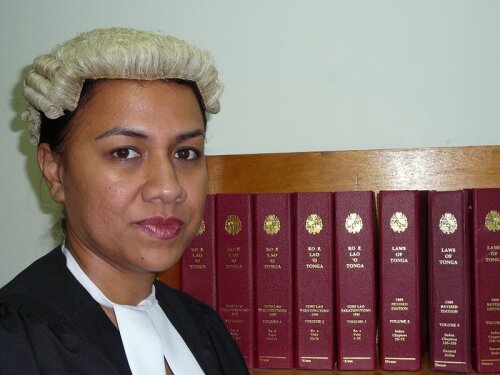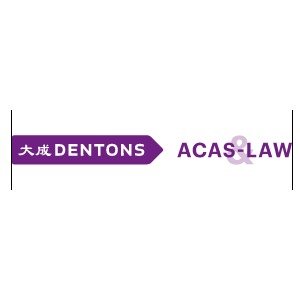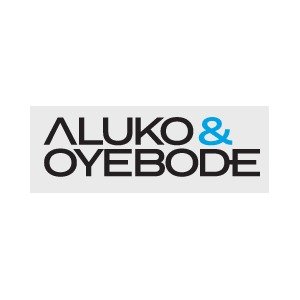Best Advertising and Marketing Lawyers in Port Harcourt
Share your needs with us, get contacted by law firms.
Free. Takes 2 min.
List of the best lawyers in Port Harcourt, Nigeria
About Advertising and Marketing Law in Port Harcourt, Nigeria
Advertising and marketing are vital components of the commercial landscape in Port Harcourt, the capital of Rivers State, Nigeria. As businesses seek to expand their customer base and enhance brand recognition, they engage in various marketing strategies and advertising campaigns. However, these efforts are regulated by laws to ensure fairness, consumer protection, and ethical communication. The legal framework governing advertising and marketing in Port Harcourt aligns largely with national regulations but can also be influenced by local statutes and customary laws. Businesses operating in this domain must navigate these legal landscapes to avoid potential pitfalls, making awareness and compliance critical.
Why You May Need a Lawyer
In the dynamic arena of advertising and marketing, several circumstances may necessitate seeking legal counsel. Here are some common situations:
- Compliance Issues: Ensuring marketing campaigns comply with local and national laws to avoid fines or penalties.
- Intellectual Property Protection: Safeguarding trademarks, copyrights, and other intellectual property in promotional content.
- Contractual Disputes: Resolving disputes arising from agreements with advertising agencies, vendors, or clients.
- Consumer Protection Claims: Defending against claims of false advertising, deceptive practices, or breaches of consumer rights.
- Licensing and Permits: Navigating legal requirements for licenses or permits needed for certain marketing activities.
Local Laws Overview
Several key laws and regulations impact advertising and marketing activities in Port Harcourt, Nigeria:
- Advertising Practitioners Council of Nigeria (APCON): Oversees the standards and ethics of advertising practice, ensuring all advertisements adhere to set guidelines.
- Consumer Protection Council (CPC): Ensures that marketing practices do not exploit consumers and safeguards their rights against false or misleading advertisements.
- Intellectual Property Laws: Govern protection for trademarks, patents, and copyrights in advertising materials.
- Cybercrime Act: Addresses issues related to online and digital marketing, including data protection and privacy laws.
- Nigerian Communications Commission (NCC): Regulates marketing communications across telecommunications platforms.
Frequently Asked Questions
What is the role of APCON in advertising in Port Harcourt?
APCON ensures that all advertisements are ethical, truthful, and socially responsible. It sets standards that advertisers must follow to maintain these standards in all marketing practices within Nigeria, including Port Harcourt.
Can I use internet marketing without special permission?
While generally you can use internet marketing, compliance with laws concerning electronic transactions, data protection, and the Cybercrime Act is crucial to avoid legal issues.
What actions can be taken if a competitor engages in false advertising?
You can file a complaint with the Advertising Standards Panel of APCON or pursue legal action based on unfair competition or deceit.
How do intellectual property laws affect advertising?
Intellectual property laws protect the use of creative works in advertising. Unauthorized use of protected content can lead to legal disputes over infringement.
Do I need a lawyer to negotiate advertising contracts?
While not mandatory, having a lawyer can help ensure contracts are fair, comprehensive, and protect your business interests, mitigating potential legal risks.
What are the penalties for non-compliance with advertising laws?
Penalties vary from fines, withdrawal or suspension of offending advertisements, to legal actions or sanctions from regulatory bodies like APCON or CPC.
How important is consumer protection in marketing?
Consumer protection is a cornerstone of advertising law, aiming to prevent deceptive and unfair practices, thus maintaining market integrity and consumer trust.
Is there a regulation concerning advertising to children?
Yes, there are special cautionary guidelines in advertising to children to prevent exploitation and ensure suitability of content for younger audiences.
What should I do if I receive a cease and desist letter?
Consult a lawyer immediately to understand the legal grounds of the claim and to decide on an appropriate response or possible defense actions.
How can someone resolve a dispute with an advertising agency?
Disputes can be resolved through negotiation, mediation, arbitration, or litigation, depending on the complexity and seriousness of the case.
Additional Resources
For further assistance and information, you may contact the following agencies and organizations:
- Advertising Practitioners Council of Nigeria (APCON): Provides information and compliance guidance on advertising regulations.
- Consumer Protection Council (CPC): Offers resources on consumer rights and mechanisms to address violations.
- Nigerian Communications Commission (NCC): Offers guidance on marketing using telecommunications platforms.
- National Office for Technology Acquisition and Promotion (NOTAP): Provides support for intellectual property registration and protection.
Next Steps
If you determine that legal assistance is required, consider the following steps:
- Conduct research to find a qualified advertising and marketing lawyer in Port Harcourt with experience in the local market.
- Prepare relevant documents and details about your situation to provide to your lawyer for a thorough assessment.
- Arrange consultations to discuss your concerns, learn about potential solutions, and decide on the best course of action.
- Ensure ongoing communication with your legal representative to stay informed about your case or compliance matters.
By following these guidelines, you can mitigate risks and ensure your advertising and marketing activities in Port Harcourt remain within legal boundaries.
Lawzana helps you find the best lawyers and law firms in Port Harcourt through a curated and pre-screened list of qualified legal professionals. Our platform offers rankings and detailed profiles of attorneys and law firms, allowing you to compare based on practice areas, including Advertising and Marketing, experience, and client feedback.
Each profile includes a description of the firm's areas of practice, client reviews, team members and partners, year of establishment, spoken languages, office locations, contact information, social media presence, and any published articles or resources. Most firms on our platform speak English and are experienced in both local and international legal matters.
Get a quote from top-rated law firms in Port Harcourt, Nigeria — quickly, securely, and without unnecessary hassle.
Disclaimer:
The information provided on this page is for general informational purposes only and does not constitute legal advice. While we strive to ensure the accuracy and relevance of the content, legal information may change over time, and interpretations of the law can vary. You should always consult with a qualified legal professional for advice specific to your situation.
We disclaim all liability for actions taken or not taken based on the content of this page. If you believe any information is incorrect or outdated, please contact us, and we will review and update it where appropriate.
















